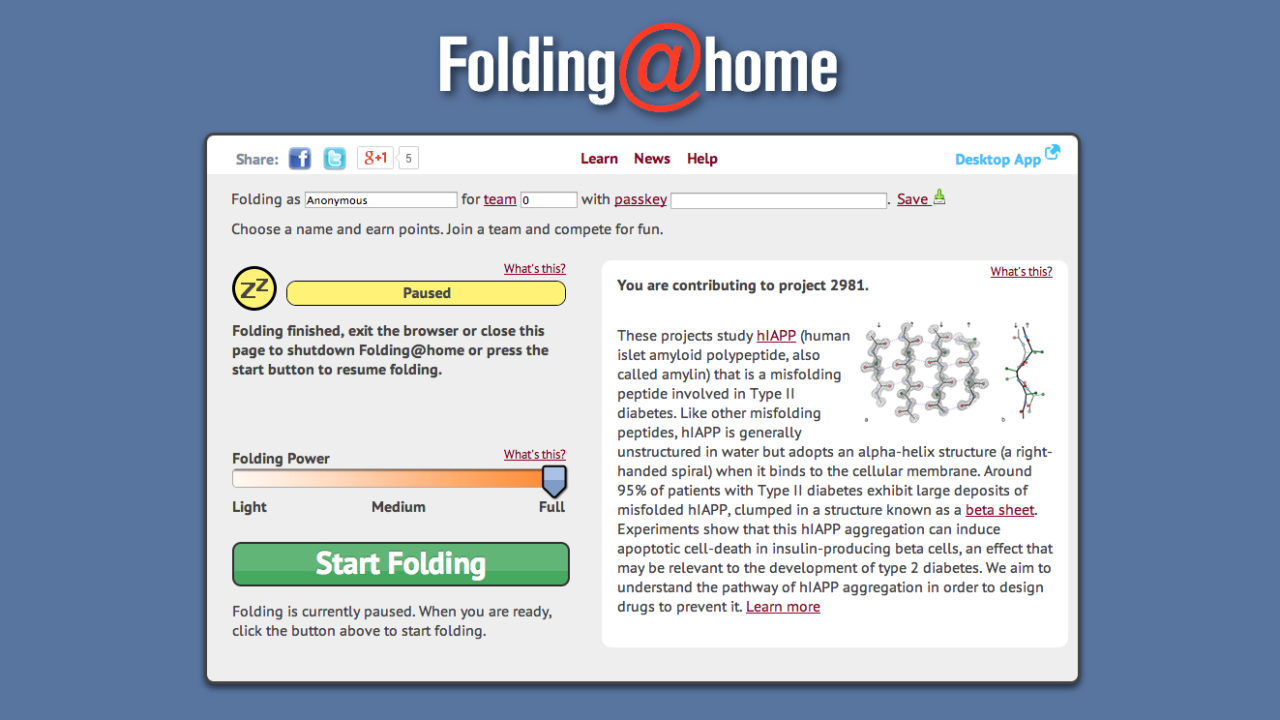Contribute Your Spare CPU Cycles to Folding@home With Its New Chrome Web App

Altruistic geeks with a few CPU cycles to spare can now contribute to the Folding@home project with a Chrome Web App. What used to require specialized desktop software can now be accomplished right in your browser.
Folding@home is a distributed computing project first launched in 2000. For the uninitiated, distributed computing allows scientific researchers to take complicated tasks that would normally require hundreds of hours of expensive processing time on individual supercomputers, split these tasks up into thousands or even millions of tiny parts, and then distribute those parts to millions of consumer computers all around the world. Each computer processes its own small part and uploads the results, which are then combined with the results from all of the other computers.
Participating users can configure their computers to process the data full time or, more commonly, to only work on the projects while the computer is idle, preventing any conflicts for CPU time between a distributed computing project and a user’s own tasks.
Via this method, distributed computing projects have allowed researchers to gather valuable data about curing disease, study complex mathematics theories, and even analyze radio telescope data for signs of extraterrestrial communication. In terms of the Folding@home initiative specifically, it has contributed to the advancement of research into Alzheimer’s disease, Huntington’s disease, cancer, and many other medical issues.
Users who want to participate can download Chrome and then head over to the Chrome Web Store to add the Folding@home app to their browser. Once launched, users can participate anonymously, or create an account to track their project contributions over time. Users can also join one of the many teams that compete to see which can process the most data.
We gave the app a try on our TekRevue production Mac and it worked flawlessly. Upon launching Folding@home, we had the option to set the amount of resources we wanted the app to use with a slider, and when we moved the slider all the way to “Full,” the app had no problem maxing out the performance of all twelve of our Mac Pro’s cores.
There are unfortunately no advanced options like work schedules and download limits, but users can pause the process at any time or simply close the Chrome window when they’re done. While we’d love to see the addition of more options in the future, this new Web-based Chrome app is the quickest and easiest way to start contributing your computer’s spare CPU power to a worthwhile cause. Those who don’t want to use Chrome can also participate by downloading the desktop app at the Folding@home website.
















